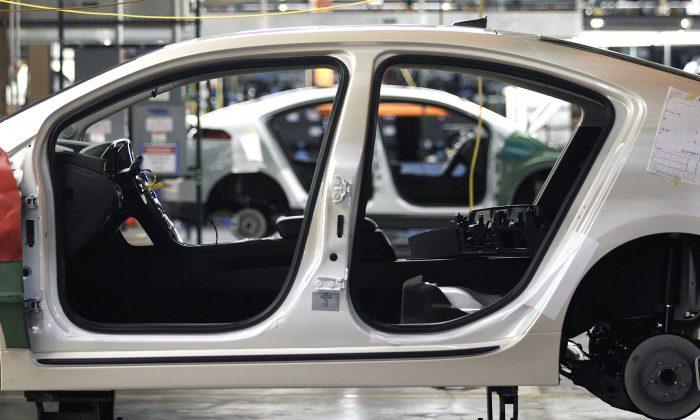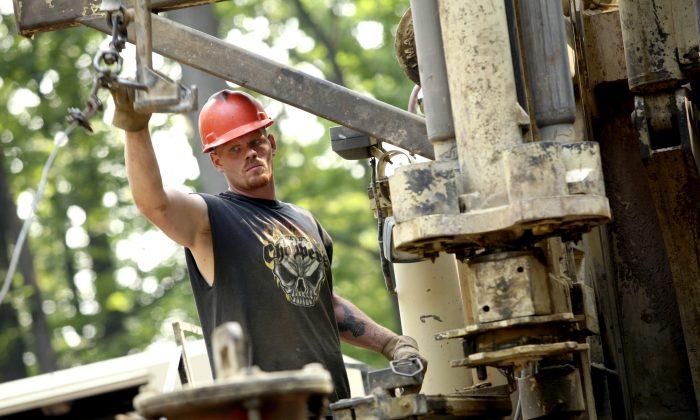NEW YORK—U.S. venture capital investors poured more than $6.5 billion into 906 deals during the second quarter, the most in two years, according to a recent industry report.
The MoneyTree Report, a study by PricewaterhouseCoopers (PwC) and the National Venture Capital Association (NVCA), found that investment activity jumped 34 percent in dollars compared to the first quarter of 2010.
The study is based on data from Thomson-Reuters.
Venture capital firms invest in startup businesses, often in their early stages, and their activities are a barometer for business growth and sector growth. Venture capitalists may money by later selling the company or taking the company public via an initial public offering (IPO). For example, in the early 1990s, venture capitalists invested heavily in technology firms and research and development into the computer field, providing funding for many of today’s most-successful Silicon Valley firms.
“As the exit market begins to show signs of life, venture capitalists are now able to look increasingly at new investments outside their existing portfolio,” said Mark Heesen, NVCA president, in a statement.
One of the biggest sectors to receive funds during the last quarter was clean technology, which saw double the investments it received in the first quarter of this year. Clean technology includes pollution and recycling, power supplies and conservation, and alternative energy.
The life sciences sector, which includes biotechnology, also saw big jumps—52 percent in dollars and 36 percent in the number of investments.
“Venture capitalists are feeling more positive about the economic outlook for investment, based upon the jump we saw in [venture capital] funding this quarter,” said Tracy T. Lefteroff, global managing partner of the venture capital practice at PwC in a company press release.
A Better Place for Electric Vehicles
Historically, venture capital funding has skewed toward technology and biotech industries, but last quarter the clean energy industry saw a big shift in funding.
Better Place, Inc. received $350 million from venture capital investors during the quarter. Better Place, based in Palo Alto, Calif., makes systems and infrastructure for the electric-vehicle industry. Most of the funding came from VantagePoint Venture Partners.
“For Better Place, scalability is about combining economies of scale with replicability (simultaneously going to market in multiple regions while addressing the characteristics unique for each),” said Amit Nisenbaum, head of subsidiaries enablement at Better Place.
The company has set up subsidiaries in each of its markets to handle getting customers and maintaining relationships to ensure each market is well-served.
Also, for a venture capitalist, cleantech companies represent a longer-term investment as the initial cash outlay is much larger than a typical software or Internet company, who biggest expenses are its people.
“Given these differences, cleantech companies require investors with a different profile: the ability to deploy large amounts of capital, often over multiple rounds, and to look beyond a 5-10 year timeframe,” Nisenbaum said.
Biggest Gains go to California
California experienced the most investments from venture capitalists, according to data from Dow Jones VentureSource, a division of News Corp.
The state received $4 billion in funding during last quarter, a 51 percent gain above the same period in 2009—that’s almost at the levels seen prior to the global economic recession.
Many economists believe that the news bodes well for California in terms of jobs. The state has a 12.3 percent unemployment rate, around 2.8 percent higher than the national average.
Northern California is home to most of the country’s technology and electric-vehicle companies.
Tesla a Winning Formula
A prominent venture capital success story is that of Tesla Motors, based in Palo Alto, Calif. The company, which specializes in electric vehicles, was started in 2003 and received $7.5 million in funding from Elon Musk, an entrepreneur who co-founded Internet payment system PayPal. Musk is currently the CEO of the company.
Early investors in the company included Compass Technology Partners and SDL Ventures, as well as a slew of private companies and other private-equity investors. Tesla in June of 2009 received $465 in financing from the U.S. Department of Energy, after being recognized as one of the nation’s leading electric-vehicle research firms.
Tesla currently sells a $100,000 electric convertible called the Roadster, and is working on a four-door sedan Model S, which will retail for about $50,000.
Earlier this year, in May, Tesla signed an agreement with Japanese auto giant Toyota Motor Corp. to jointly develop electric vehicle technology for the mass market. The companies’ first collaboration, an all-electric Toyota RAV4 compact SUV, will go to market in 2012. Tesla will provide the electric engine and battery for the vehicle.
Tesla became a publicly traded company on the Nasdaq Stock Exchange after a successful IPO on June 29. The IPO raised more than $225 million for the company.




Friends Read Free